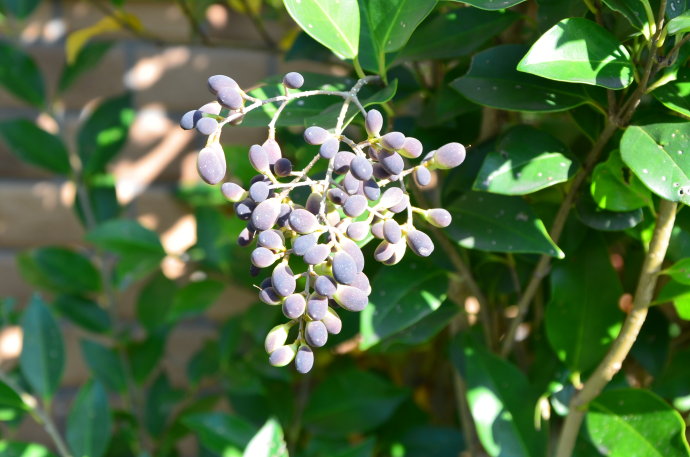Medicinally Chinese privet mainly refers to the dried ripe fruit of Ligustrum lucidum Ait., which is a member in the family Oleaceae. Besides, the fruit of Ligustrum thibeticum Decne., a species of privet grown in Tibet, is also used medicinally since it has similar effect. Therefore, other names of it include broad-leaf privet, Wax Tree Privet, Privet Fruit, Fructus Ligustri Lucidi, Chinese Ligustrum, Dong Qing Zi, White Waxtree, Chinese Ligustrum, and so on. In China, it is mainly produced in Zhejiang, Jiangsu, and Hunan. It is usually harvested in winter when the berries are all ripe. And the following steps are to slightly steam or slightly bathe it in the boiling water and then dry. It is usually raw or prepared with wine.
CHINESE PRIVET HEALTH BENEFITS
In his famous medical work of the "Compendium of Materia Medica", Li Shizhen says that ligustrum shrub is evergreen even during winter, which resembles a chaste girl who always keeps its virtue even though she is in harsh conditions. So it is named Nu Zhen Zi in mandarin. And today it is used for a variety of diseases, including coronary heart disease, Chronic Atrophic Gastritis, Hepatitis, Chronic Bronchitis, Hyperlipidemia, poor digestion, and so on.

Chinese Privet
(1). Patients with coronary heart disease were ever treated with its injection (10mg ethyl acetate extract per ml). The result turned out to be very good. The effective rate for angina was 86.3%;
(2). 336 cases of chronic atrophic gastritis were ever treated with Zhen Qi Fu Zheng granules. 3 months later the stomachoscopy showed that the total efficacy rate in improving symptom was 95%.
LIGUSTRUM LUCIDUM HERBAL REMEDIES
In accordance with the Chinese Materia Medica, it is sweet and bitter in flavor and cool in nature. It covers meridians of liver and kidney. Major functions include tonifying liver and kidney, clearing deficient heat, and improving eyesight. Vital ligustrum lucidum uses and indications are lightheadedness, soreness and weakness of waist and knees, emission, tinnitus, premature graying of hair, hectic fever due to yin deficiency, and dim eyesight. Recommended ligustrum lucidum dosage is from 6 to 15 grams in decoction or pills.
1. Er Zhi Wan (ligustrum lucidum and eclipta prostrata combination) from Yi Fang Ji Jie (Wang Ang and his Variorum of medical recipes). It is coupled with Han Lian Cao (Eclipta Alba) to treat liver-kidney deficiency induced clouded, hazy or dim vision, vision loss, premature graying, vertigo, Tinnitus, Insomnia, lower back pain and knee weakness, Nocturnal Emission, Diabetes, and more.
2. According to Zhe Jiang Min Jian Chang Yong Cao Yao (Zhejiang People Commonly Used Herbs), it is combined with Eclipta Alba and Sang Shen Zi (Mulberry Fruit-Spike) to soak wine for the treatment of neurasthenia.
3. Nu Zhen Tang from Yi Chun Sheng Yi (Enriching the Meaning of the Wine of Medicine). It is formulated with Sheng Di Huang (Rehmannia), Gui Ban (Fresh Water Turtle Shell), Dang Gui (Dong Quai), Fu Ling (Poria), Niu Xi (Achyranthes), Che Qian Zi (Plantain Seeds), etc. to cure kidney affected by dryness-heat, stranguria with turbid discharge, painful urination, lower back pain and weak legs, and dispersion thirst.

![Diseases, Symptoms, tcm, [tcmwindow.com]](/uploadFile/adImg/2015/11/11/f5cbfcc0-4df5-4646-9b9a-f316651a0199.jpg)





